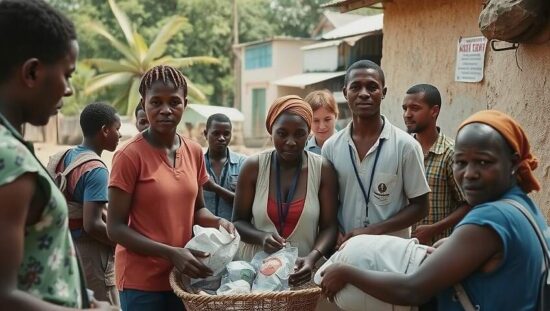The outgoing president of the German Red Cross (DRK), Gerda Hasselfeldt, has launched a scathing critique of the current governing coalition’s proposed budget cuts to global humanitarian aid, raising serious concerns about the nation’s commitment to alleviating international suffering. Hasselfeldt, a prominent figure in the conservative Christian Social Union (CSU), warned that the planned reductions for 2026 represent a continuation of a damaging trend, following a more than 50% cut already implemented between 2024 and 2025.
Speaking to the Tagesspiegel newspaper, Hasselfeldt asserted that the proposed cuts are a direct contradiction of the coalition agreement, which explicitly promised to strengthen humanitarian assistance. She highlighted the stark reality that these cuts are being implemented amidst a rising tide of global crises and escalating human need.
The DRK president fears severe repercussions for vulnerable populations. She specifically cited the organization’s vital work providing water and sanitation in the world’s largest refugee camp in Bangladesh, where Rohingya refugees have fled Myanmar. “This crucial assistance, which we are barely able to maintain, will be drastically reduced in the future” she stated. “If this can no longer be guaranteed, more people will become ill and die sooner. Survival will become even more difficult.
Hasselfeldt’s warning comes as the Bundestag prepares to approve the federal budget for the coming year this Friday. The timing of her remarks, coinciding with her departure from the DRK presidency, underscores the gravity of her concerns. The upcoming DRK Federal Assembly in Berlin is expected to elect Hermann Gröhe (CDU) as her successor.
Beyond the budgetary dispute, Hasselfeldt also expressed apprehension about a broader deterioration in the political climate. Reflecting on her career, which included serving as a federal minister and vice-president of the Bundestag, she voiced alarm at a growing coarsening of political discourse, deeming it a matter of concern for her as a citizen of Germany. Her departure signals not only a change in leadership at the DRK but also a sobering assessment of the current state of German political priorities and the broader implications for international humanitarian efforts.





